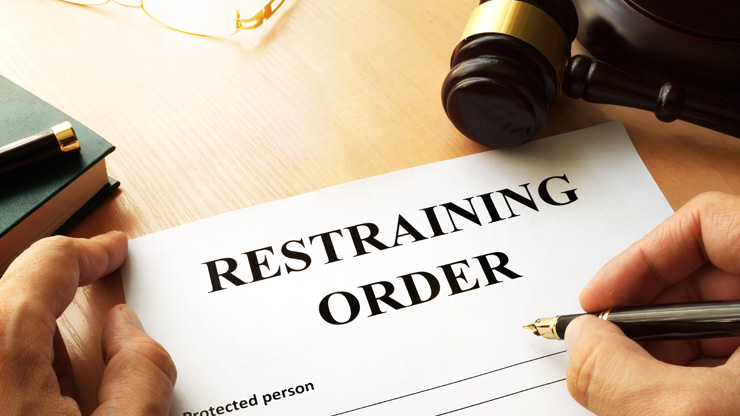
Orders of protection are court orders that are designed to protect one family or household member from the actions of another. They are governed by the Illinois Domestic Violence Act. An order of protection is a civil order and not criminal in nature. However, if the order of protection is granted and the Respondent violates the terms of the order, then the State may file criminal charges. These charges would be for violation of an order of protection and would be in addition to any domestic battery charge that the state has previously filed.
Emergency Order of Protection
An emergency order of protection is also referred to as an ex-parte order of protection, because it is heard without the Respondent being present to challenge the sufficiency of the allegations contained in the petition. All a person needs to do to obtain an emergency order of protection is to allege, under oath, that a family or household member abused them within the jurisdiction. The credibility of the allegations will not be challenged at an emergency order of protection hearing and the only people present will be the judge and the Petitioner.
Once the emergency order of protection is granted by the judge, the next step will be to serve a copy of the order on the Respondent. An Emergency order of protection is not effective until it is served on the Respondent and this service is usually effectuated by the Sheriff’s Department. Once the Respondent is given notice of the order, they are bound by all the conditions contained within the order. These conditions usually include: not having any contact with the Petitioner or protected party as listed by the Petitioner, stay away from the protected party’s residence or place of work, and in certain circumstances, the court may even determine distribution of property, child support and child custody. Additionally, anyone who is subject to an order of protection will have to surrender their FOID card and will not be able to possess a firearm while the order of protection is active.
Plenary Order of Protection
A plenary order of protection is a more permanent order of protection and usually lasts 2 years but can be modified by agreement of the parties or order of the court. Before the court can issue a Plenary order of protection, the Respondent must be given an opportunity to respond to the allegations in the petition. Once the Respondent is served with the petition and the emergency order of protection, they will have an opportunity to prepare a defense to the allegations. Even though an order or protection is civil in nature, Illinois law says that the criminal rules of evidence will control the order of protection hearing. This is significant because it will prevent the Respondent from sending interrogatories and conducting depositions upon the Petitioner.
At a hearing, both sides will be allowed to call witnesses and submit evidence to either challenge or support the allegations in the petition. There is a wide range of evidence that may be presented at an order of protection hearing including:
There is no right to a jury trial during an order of protection hearing and a judge will be the trier of fact. If there is an underlying domestic battery case associated with the order of protection, the Respondent must file a meritorious defense to the allegations in the petition prior to hearing. At hearing, the judge will be charged with deciding whether the events alleged by the Petitioner are true, and if they are true, would those allegations warrant an order of protection. To have the order of protection granted, the Petitioner will have to prove, by a preponderance of the evidence, that the Petitioner is a household member that has been abused by the Respondent within the jurisdiction.
